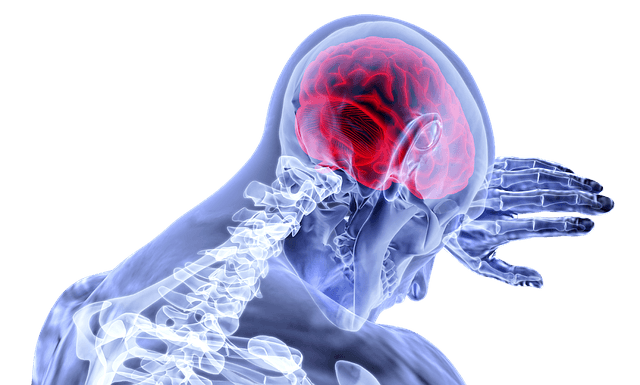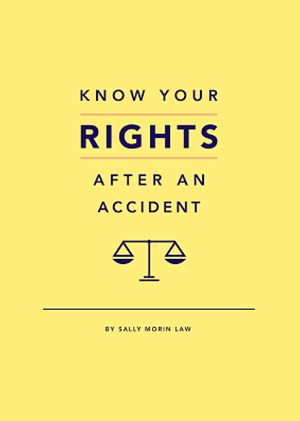What is Traumatic Brain Injury?
Thank you for checking out Sally Morin Personal Injury Lawyers’ blog. Our goal here is to provide badly needed information – like answering “What is traumatic brain injury?” – for people who have suffered serious injuries in traffic accidents. We seek to help those folks navigate the complicated personal injury process. Hopefully you feel just a little bit more empowered to move forward with your case after reading more about traumatic brain injuries (or “TBI’s”) in this article.
Traumatic Brain Injury (TBI)
What is traumatic brain injury? That’s a difficult question to answer because each victim is different and the type and extent of injury they suffer can vary widely. Many individuals may suffer relatively mild traumatic brain injuries after an accident and be forced to deal with headaches for a few days. Other victims can have memory loss, physical disability, and emotional/psychological changes that can last a lifetime.
The one thing that ties all these types of traumatic brain injury together is that they almost always happen after an accident or some physical trauma that involves a blow to or rapid acceleration/deceleration of the head. (Car accidents are a prime cause of TBI in The United States.)
This physical stress placed on the skull can either compress the brain (the skull actually bends or breaks and presses into the brain tissue) or the brain can “slosh” around inside the skull. This movement can easily damage the soft tissues of the brain and the surrounding membrane.
Symptoms of Traumatic Brain Injury
When trying to understand just what is traumatic brain injury, the most important aspects to note are the symptoms. Symptoms of traumatic brain injury can occur immediately after a victim suffers the trauma or they may not arise until hours or even days after the traumatic event.
Immediate symptoms are often caused by direct trauma to the brain. Symptoms that are delayed are often caused by swelling or bleeding of the brain or the membrane that coats it. This swelling and fluid retention can increase the pressure inside the skull and deform the brain. When that occur it can shut off blood flow to certain portions of the brain and cause tissue death.
Common symptoms of mild traumatic brain injury (such as concussion) include:
- Loss of consciousness
- Feeling dazed, confused or disoriented
- Headache
- Nausea (with or without vomiting)
- Drowsiness
- Speech problems
- Insomnia
- Excessive sleep
- Dizziness
- Memory or concentration problems
- Mood swings
- Depression or anxiety
Many of the less-obvious symptoms include sensory changes caused by the trauma. These can include blurred vision, ringing in the ears, a bad taste in the mouth, and sensitivity to light or sound.
Symptoms of a more serious traumatic brain injury can include:
- Extended periods of unconsciousness
- Severe headache
- Vomiting
- Seizures
- Dilation of the pupils (usually only one but sometimes both)
- Fluids leaking from the nose or ears
- Inability to wake up
- Numbness or physical weakness in extremities (fingers and toes)
- Confusion
- Agitation, aggression, or unusual behavior
- Slurred speech
So, instead of asking “what is traumatic brain injury,” a better question might be “how can I recognize traumatic brain injury?” Recognizing the symptoms and seeking medical help immediately is the best way to stack the odds of a full recovery in your favor.
It’s important to note that every victim of traumatic brain injury won’t suffer every symptom. Any one of these is enough to suggest to a health care professional that there has been some sort of injury to the brain and would require further testing or observation.
Determining Traumatic Brain Injury in Children is Even Harder
It’s also important to note that children who suffer traumatic brain injury may not always understand the symptoms they are suffering or be able to articulate those symptoms verbally. Unfortunately, children are one of the populations at the most risk for TBI and often suffer more after car accidents in California.
That’s why when you suspect a child has suffered a traumatic brain injury (such as in a car accident) you always watch out for:
- Change in eating habits
- Irritability
- Constant or repeated crying
- Inability to pay attention
- Altered sleep patterns
- Seizures
- Sad or depressed mood
- Drowsiness
- Loss of interest
Causes of Traumatic Brain Injury
When trying to understand what is traumatic brain injury, it’s important to learn the most common root causes of TBI in The US because statistics show these potentially life-altering injuries are on the rise..
Statistics collected by the CDC show that the rates of traumatic brain injury in The United States have steadily climbed since 2001. In fact, in 2010 the overall rate of ER visits, hospitalizations, and death caused by TBI in the US peaked at 823.7 per 100,000. In that year there were over 2.5 million reported traumatic brain injuries in the US.
Keep in mind, because of the nature of traumatic brain injury many victims don’t even report their injuries simply because they don’t realize an injury has occurred.
Car Crashes are a Leading Contributor to TBI
While anything that jars the brain can result in traumatic brain injury, one of the most common causes of TBI in California is car accidents. Every year there are thousands of car crashes in California.
These collisions often involve pedestrians, cyclists, or motorcyclists who aren’t enclosed in the safety cage of a car. These individuals are at a much higher risk of suffering some sort of serious traumatic brain injury. However, even if you’re safely cocooned inside are a car with a safety belt and air bag at the time of the crash you may suffer traumatic brain injury. (Remember, even sudden acceleration or deceleration without an actual blow to the head is enough to cause TBI.)
How often do car accidents result in TBI? CDC statistics show motor vehicle accidents are the root cause of roughly half of all fatal cases of traumatic brain injury involving victims between the ages of 5-years-old and 44-years-old. They’re the leading cause of fatal TBI in individuals between 5-years-old and 24-years-old.
Other Causes of TBI
Other causes of traumatic brain injury include:
- Falls (even from standing position)
- Sports Injuries (football is the primary offender but other sport can result in TBI)
- Being struck on the head by falling object
- Explosive blasts
- Violent acts (fistfights, etc.)
Risk Factors for Traumatic Brain Injury
While everyone is equally at risk for traumatic brain injury there are certain populations who are less-resistant to the type of trauma that can cause brain injury. These groups include:
- The elderly
- Young children (4-years-old or younger)
- Adolescents and young adults (between 15-years-old and 24)
- Those who have suffered TBI in the past
That last category is important to note because recent research has shown that repeated traumatic brain injury can cause a cumulative effect over time with each successive injury cause worse and worse health problems. That’s part of the reason many school are eliminating tackle football from their extracurricular activities across the United States.
Complications of Traumatic Brain Injury
Victims and their family members are often stuck asking “what is Traumatic Brain Injury” in a time of crisis, but it’s often the complications of TBI that have the longest lasting effects. While the injury itself is enough to cause quite a scare, it’s often the complications associated with a TBI that can permanently damage a person’s physical, mental, or psychological being beyond repair. These can include complications include:
- Seizures
- Fluid on the brain
- Infections
- Frequent severe headaches
- Vertigo
In addition, if certain parts of the brain are injured, the victim can suffer several long-term effects that they may have to live with for the rest of their lives. These can include:
- Nerve damage (which can lead to physical disabilities)
- Loss of or altered sensations (the most common are taste, smell, and vision)
- Paralysis (usually partial)
In addition, some individuals can suffer intellectual setbacks as well. These may include memory problems, cognitive issues, and even severe changes in mood or demeanor.
It’s these long-lasting effects that often create the majority of the expenses associated with recovery from traumatic brain injury. While an ER visit can run into the thousands of dollars, dealing with a lifelong disability (even one as mild as a change in sensitivity to light) can leave a victim’s quality of life significantly impacted. And that quality of life is one of the factors that a good car accident attorney in California will always consider when calculating a fair insurance settlement or financial award.
And if severe brain injury occurs, it can cause tremendous hardship for the victim’s family members. Indeed, severely injured individuals can lose consciousness for minutes, hours, days, or even years. Vegetative states, extended comatose periods, and brain death have all been associated with severe traumatic brain injuries—all of which can create a tremendous financial burden that may be nearly impossible for a family to overcome.
Protecting Yourself from Traumatic Brain Injury
We hope you never have to ask your physician “what is traumatic brain injury?” But statistics show that you might. However, while it’s nearly impossible to keep yourself safe 100% of the time, there are a number of things you can do to minimize the risk of traumatic brain injury in your daily routine.
1) Drive Defensively
Never assume the other driver is paying attention. Always be wary and err on the side of caution. And if you ride a motorcycle you should know these tips for riding smarter.
2) Always Wear Safety Belts
Seat belts save lives. There’s no other way to put it. Seat belts cut the risk of death by 45% and the risk of serious injury by half.
3) Always Wear Bicycle Helmets
Wearing bicycle helmets has been scientifically shown to dramatically reduce the rates of fatalities in bicycle accidents as well as the rates of traumatic brain injuries suffered by victims in collisions with automobiles and simple single-person crashes.
4) Keep your Motor Vehicle in Good Repair
Improper care and maintenance contributes to car crashes every day. It’s important to keep your brakes, steering, and signal lights operational in order to avoid collisions.
You’re Not Alone
If you’re just now learning the answer to what is traumatic brain injury the hard way, there is help available to you. If you or a loved one has suffered a severe TBI, you don’t have to struggle through the recovery process alone. If your injury was caused by another individual’s carelessness, recklessness, or disregard for your safety, they could be held financially liable for your injuries. Learn more about the resources and compensation available to accident victims. We offer a FREE online TBI case evaluation where you can find out if it’s worth bringing a personal injury traffic accident claim. Get help now!











